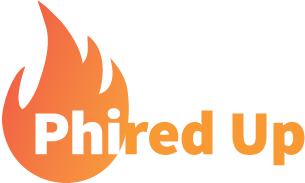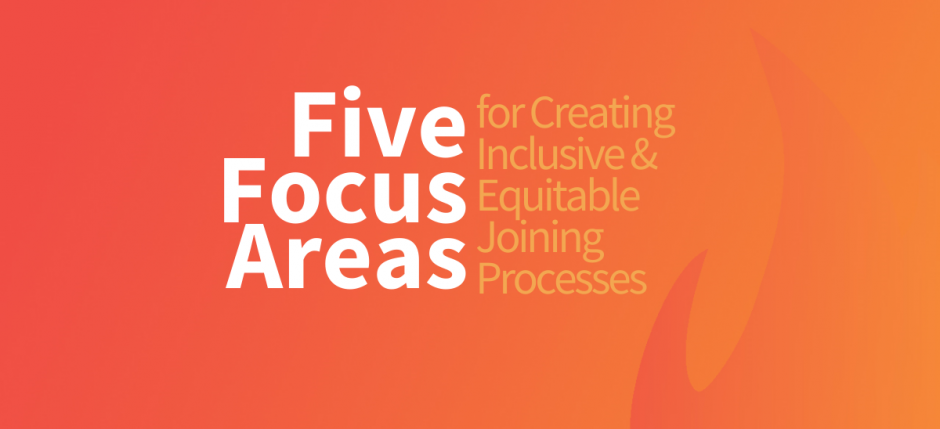Five Focus Areas for Inclusive & Equitable Joining Processes
by Matt Mattson, Tenea McGhee, Rob Webb, Ashley Schulte, and Colleen Blevins
Culture changes too slowly.
Especially related to our desire for a more just, equitable, and inclusive fraternity/sorority experience.
A while ago we released a free resource called, “Universal Principles of Inclusivity and Equity in the Fraternity & Sorority Joining Process.”
Throughout the industry, there has been a greater emphasis put on creating more inclusive and equitable joining processes for fraternities and sororities over the course of the last couple of years. Many industry leaders are pushing for and implementing changes in very real ways.
But culture changes too slowly.
If you are a fraternity/sorority student leader, professional, or volunteer, the urgency of needed change combined with the mountain of things that need changing can be overwhelming.
We know that focusing on a few select areas to concentrate on this year will help. If you know a way to change everything all at once, please do so. For the rest of us mere mortals, here are some specific and realistic areas for change this year.
5 Focus Areas for Inclusive & Equitable Joining Processes
1. COMMUNITY COLLABORATION
Our communities have to know, understand, respect, and appreciate each other. Today, our councils are separate and unequal. So are the efforts to support their growth. Certain councils are advertised first and loudest. Many incoming members never even learn about certain councils or chapters. Leaders of chapters and councils have minimal awareness of how other councils operate. And, of course, culturally-based councils (NPHC and councils typically called “MGC” or “UGC”) often get the short end of this stick.
We recommend creating community-wide marketing, leads generation, and prospective member education efforts that a) benefit all councils and chapters, b) provide prospective members with an understanding of all the sorority and fraternity options on campus, and c) empower prospective members to demand a safe, healthy, and inclusive joining experience from all chapters.
Each council-level leader must be able to describe the joining process of all councils and promote the unique narratives of all councils on campus.
Each chapter leader must be able to demonstrate an understanding and appreciation for the unique benefits, history, and experience of each council on campus.
Each professional in our industry should be able to demonstrate a deep awareness of, appreciation for, and ability to support the joining processes, history, and benefits of each council and organization type.
This sense of basic community building and appreciation is a core foundational need in order to create any real change that goes beyond the surface.
2. INVEST IN CULTURALLY-BASED FRATERNAL ORGANIZATIONS
If we really value inclusivity within our joining processes, we must ensure that every community is represented and healthy. We must reallocate resources to support culturally-based fraternal organizations at a much higher level. We have been spending TENS OF THOUSANDS of dollars in campus-based staff time alone each semester on running Panhellenic recruitment. Meanwhile, CBFOs can’t get a brochure or a website. Yes, IFC and Panhellenic groups have more members — there’s a reason for that — we spend buckets of money making sure they do. We have to critically look at the way we allocate resources to support all organizations.
3. ACCOMMODATIONS, ACCESSIBILITY, AND BIAS REMOVAL
We have described this area before as at least treating “symptoms” right now while we all work together to tackle the bigger challenge of transforming the “system.”
There are simple ways we can demand and work to create a more accommodating joining process that welcomes and affirms all.
What does each individual considering joining need to be successful in their joining process? Consider proactive approaches to accommodation requests and/or needs, and normalizing overdelivering to provide smooth paths for each individual to join. Are there changeable policies or practices in place that you can take action on right away (attire policies, selection traditions, legacy requirements, outdated language, social media imagery, events that exclude, physical locations, accessibility accommodations for people with disabilities, etc.)
4. DEFINE THE PRODUCT & EXCLUSIVITY
Inclusivity should not be a to-do item. It should be central to our organizations’ core value proposition.
We are values-based organizations so we should be organizations that intentionally select members based on their commitment to living our values and past evidence that demonstrates that commitment.
To be an organization that actively seeks people from all corners of campus who are ready, willing, and able to act on the mission and live in accordance with the values of the organization should be the definition of what sororities and fraternities are.
But at the moment, too many of our chapters are just friendship clubs. Choosing members based on who they “like.” That’s a problem.
We must define our product. What is your organization about? Who is your organization for? Clarity around those two items will create space and rationale for more inclusive practices to emerge.
How can we become more exclusive to become more inclusive? What are your non-negotiables when it comes to what you will not tolerate out of your membership? How do you look for and assess someone’s biases in your membership criteria/qualifications? The people we attract, select, and secure for membership in our organizations (and how we do that) will determine our future. They will either be a distraction and a liability, or they will be our greatest asset. We are built from our parts. We must decide on smart ways to ensure that only the right people are attracted, selected, and secured for membership.
5. CONTINUED EDUCATION + ACTION
Training and workshops and dialogue around inclusivity and equity have skyrocketed in recent years. We’ve seen a priority placed on this investment. This is GREAT! It must continue.
Historically, our industry reacts to major events or trends with increased investments in speakers and educational experiences related to those hot topics. After the social uprising in recent years around racism and especially around black people being murdered by the state, our industry reacted by investing in speakers and educational experiences about inclusivity and equity.
We just want to say… don’t stop that trend. We might be entering a new period when there are “cooler” things to spend money on — new hot topics are emerging and will emerge. But the humanity of the people who have been historically and structurally excluded should never be treated as a hot topic.
Let us say it this way… let’s keep “transforming fraternities and sororities to be more inclusive and equitable” cool.
But let’s follow the education with ACTION. We’ve all got programming happening around us that focuses on diversity, equity, inclusion, and justice. Attending programming is a wonderful way to increase your knowledge base. But what do we DO with that information? Make it a practice to meet to put action items in place immediately following every learning opportunity… and a month out… and three months out… etc.
Did you go to a speaker about disability justice, unconscious bias, LGBTQA+ inclusive practices, race & identity, intersectionality, trauma-informed practices? That’s awesome, we love to hear it! But what did you change in your growth efforts as a result? What did you add or eliminate based on what you learned? What do you need to learn more about to be able to put action items into play?
Action-oriented, time-limited, results-required teams of leaders committed to making measurable (even if small) change should be an emerging norm in our communities.
Are there other things we’d love to recommend? Yes. Many. First among them is FINANCIAL ACCESSIBILITY! Money is one of our biggest obstacles to change. But we wanted to focus on a smaller list of things that we know for sure are within in your influence and/or control.
We’re ready to keep engaging in this conversation, and more importantly, in the work that is needed. As much as we want a big to see a massive revolution, it’s far more likely that we’ll get the results we want from a focused and intentional evolution.

